In a heartwarming interview, South African music legend Thandiswa Mazwai sits down with her daughter Malaika for a conversation that bridges generations. This candid exchange paints a portrait of a powerful artist who is also a loving mother.
The Daughter of the Soil draws inspiration for her style from powerful African women. “The late Winnie Mandela,” Thandiswa says, “was always so strong and bold. She would wear this braided bob wig with big shades (sunglasses).” This strength and boldness are qualities Thandiswa admires not just in Winnie Mandela, but also in other style icons like Grace Jones (known for her fearlessness) and Miriam Makeba. Thandiswa’s love for Africa permeates her entire being, influencing not just her music but also her fashion sense. This is evident in her hairstyles, her choice of jewellery and accessories, and the effortless way she drapes herself in garments, often designed by local talent.
Fresh off promoting her latest album Sankofa across South Africa and the US, Thandiswa Mazwai sits down for this interview. A titan of African music, her career began in 1995 with the pioneering Kwaito band Bongo Maffin. After racking up awards with them, she launched a solo career that’s seen her debut, Zabalaza (2004), go double platinum, and subsequent albums like Ibokwe (2009) and Belede (2016) achieve gold status within weeks. From the FIFA World Cup opening ceremony to legendary venues like the Apollo Theater and Radio City Hall, Thandiswa has graced stages worldwide, sharing the spotlight with icons like Hugh Masekela, Busi Mhlongo, and Stevie Wonder.

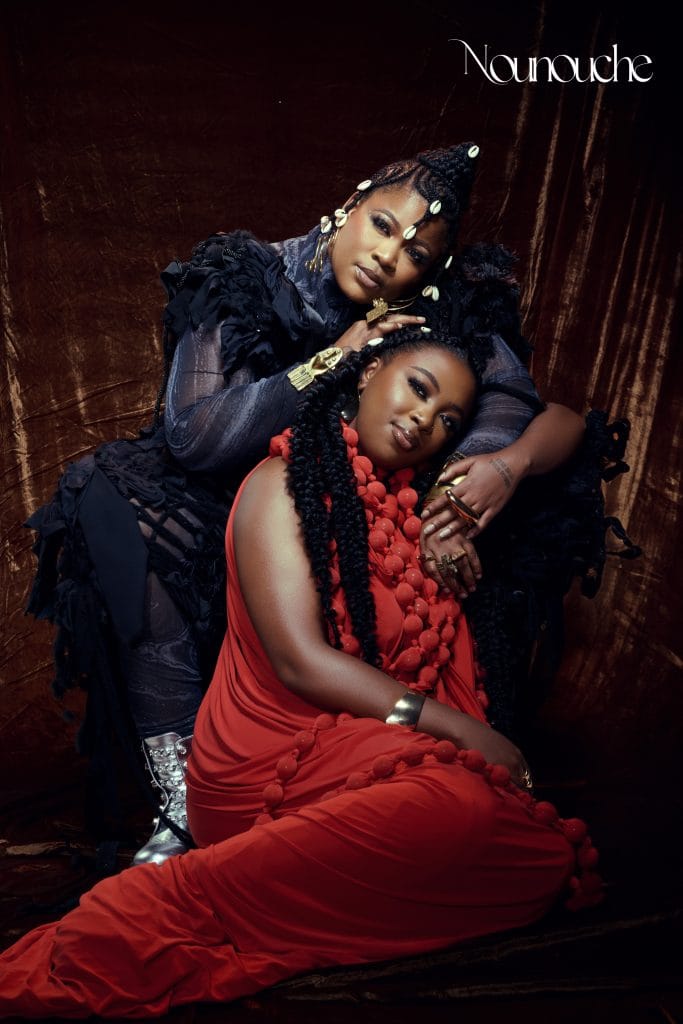
Thandiswa recently brought her talent to NPR’s intimate Tiny Desk Concert series. Launched in 2008, Tiny Desk has become a music lover’s haven, featuring superstars like Adele and Burna Boy. It’s a fitting stage for Thandiswa, whose musical journey began much like these stripped-down performances – singing for her family and teddy bears. But Malaika is curious: when did the world outside her home get to hear her voice? Thandiswa chuckles, crediting her friends for her early “discovery.” It seems a friend named Base, the life of the party, wouldn’t take no for an answer. Base would drag Thandiswa to parties, stop the music, and declare her hidden talent to the crowd. “So I guess that’s when I started singing for other people,” Thandiswa says wryly, “when Base would force me to sing at people’s parties.” Even after two decades since her debut solo album, Thandiswa admits stage fright still lingers. “You know that,” she laughs, teasingly exaggerating, “I need an ambulance before I go on stage!” It’s the songwriting process, however, where her confidence truly shines.
Malaika delves deeper, curious about the creative spark behind “Thongo’ Lam,” one of her favourite songs. “It has such a spiritual feel,” Malaika remarks. Thandiswa explains her process, describing hours spent experimenting with sounds and rhythms in her studio. “I got this idea and recorded it on my computer then. The voice was different to what I usually do because it felt like someone else’s voice, which was very “interesting”. The thing about writing is you are not always aware of all the intangible parts of the process— it’s like there are things you have at the back of your mind that creep up and become perfect,” she muses. Her latest album, Sankofa, was recorded in Johannesburg, Dakar, and New York. The album combines archival Xhosa music, jazz and West African rhythms, and includes songs produced by Meshell Ndegeocello and Nduduzo Makhathini, and collaborations with Thandi Ntuli and Tendai Shoko.
“Why did you choose the word Sankofa? And for those who don’t know, what does it mean?” asks Malaika. “Sankofa (in the Ghanaian language Twi) means to fetch…go back and fetch what’s been left behind or to always look back in order to be able to look forward. It’s about reclamation; reclaiming things that have been left behind. That could be your laughter, your joy, pride or language – anything you have left behind. “And step into your power,” Malaika adds. “Yes, step into your power.”
Thandiswa was born during Apartheid, in 1976, a few months before the Soweto Youth Uprising, and the idea of freedom was still just a dream. “It was countries like Ghana and Zimbabwe, Kenya and Tanzania who already had their freedom, that we idolised. We used to dream of going to those countries and experiencing what it was like to be a free African.
We dreamt of the Kente cloths and Asante rings. I have always had this unshakeable love for Ghana because it represented this African empire, hope, pride, and ingenuity. That’s why I called the album Sankofa besides loving the ideology behind the word.”
She admits she also used the word Sankofa so people could be curious about it. “Once you satisfy that curiosity you will discover the many Adinkra signs, with Sankofa being just one of them. You learn about the signs and the fact that Africa has been writing, in some way or another, for thousands of years. You find out all these things that we have contributed to the world… because sometimes when you are an African, you think it is predominantly the other way around and when you dig into your history you realise the world learned so much from us. From mathematics to astrology, any kind of study – medicine, beauty – we kill the game! Even spirituality, how to be a better human being. These are things we Africans can teach the world.” Malaika points to her Sankofa tattoo, a bird that appears frequently in traditional Akan art.

Thandiswa continues: “So I wanted people to be curious about the word itself so they can find out more about what makes us great.”
African traditional instruments including uhadi, umrhubhe, ngoni, kora and drums can be heard throughout the album, celebrating the pan-African spirit and the diaspora. About seven to eight songs did not make it onto the album. “By the time I stopped working on the songs I was really tired and I was done with the album. Now that the pressure is off I could take one or two of the songs and work on them. That would be nice.” The first single release ‘Kulungile’, features award-winning pianist, improviser, healer and scholar Nduduzo Makhathini and is about healing some of the traumas that people experience as children.
“The song is for that child within who seeks justice, comfort and healing”.
“If your mother was here, what would she think of this song?” Malaika asks.
“If she was here there would be no Kulungile. Well…some of those things happened to me when I was really young. I think she would be sad because mothers don’t like to find out about sad things that happen to their kids much later because then they realise they were not there to make them feel better. So I think she may be sad and then go beat someone up.” She adds, “I think my mother would be proud of me.”
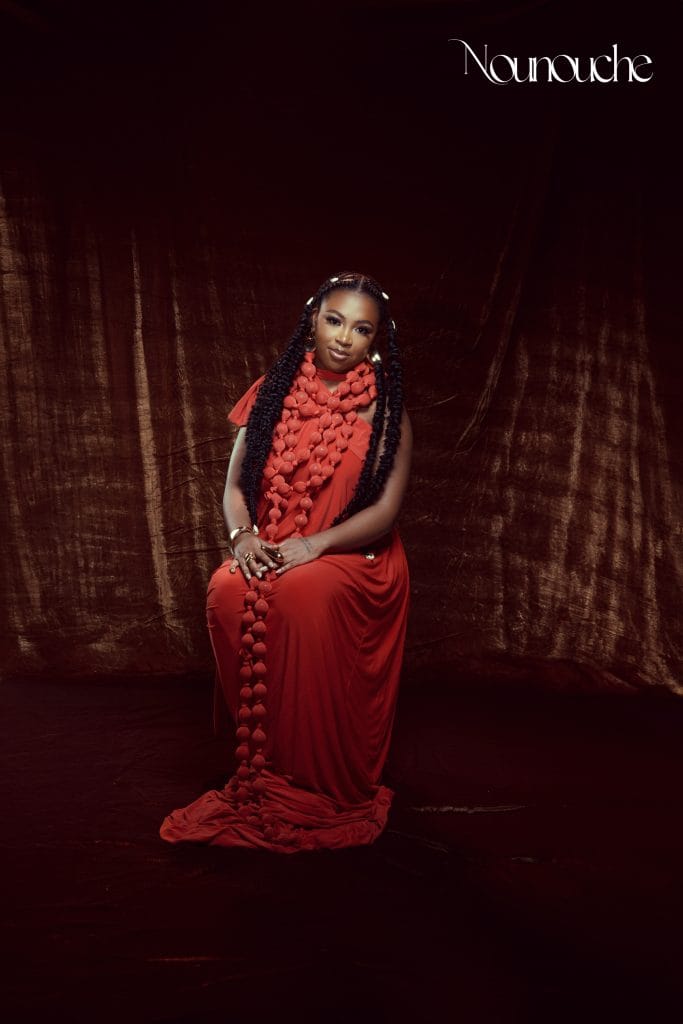

It’s only fitting that Malaika asks Thandiswa about her favourite memories of her late mother, Belede and the interview takes a heartwarming turn as Thandiswa reflects on her childhood. While discipline was a part of her upbringing, playful memories of her mother surface. “We used to play a lot, doing cartwheels, handstands and sleeping outside on the grass during the warm summer days eating toasted chicken mayo sandwiches or amagwinya (fat cakes).” Her mother was also a cultural connoisseur teaching Thandiswa the difference between Hollywood movies and films, especially the French and South American films that needed subtitles to fully understand them. “She took me to plays and we went shopping for my edgy clothes at flea markets and thrift stores to find cool stuff.”
A playful debate erupts as Malaika seeks to settle a score. “Who came first..me or Malaika the group?” she folds her arms, waiting for her mother to state the obvious fact that it was indeed Malaika, her daughter, that came first. “Baby, you know that it was you. The group named themselves after you. They always say that— ‘we heard Thandiswa’s daughter’s name and we liked it so we called ourselves after her’.” “But people don’t believe me…nizwile ke,” she reaffirms her mother’s statement. Malaika turned 24 in April, the age at which her mother gave birth to her. “Don’t even think about it,” warns Thandiswa, assuming Malaika would try to ask about having children of her own. “No! What would you tell your 24-year-old self now? Where would you take her and who would you introduce her to?”
“If I got to sit down with myself — I was a lucky 24-year-old. I was having a great time then. I had met Winnie Mandela, Nelson Mandela, Hugh Masekela, Miriam Makeba, Letta Mbulu, Busi Mhlongo, Stevie Wonder, Michael Jackson, and Chaka Khan — I wouldn’t know where to take her but I would tell her to loosen up and relax. Life is not that serious. I was so hard on myself and I never really believed that I was awesome.” “I would tell her ‘you are awesome now’. You’re not going to become awesome, you are awesome right now.”

And where does she see herself in the next 30 years? “30 years?!”
“Yes, you’ve been in the industry for 30 years,” Malaika wants answers.
“Malaika, I’m almost 50, in 30 years I’ll be 80,” says a stunned Thandiswa
“So? Where do you want to be — do you want to have a Grammy? What do you want to accomplish?”
Thandiswa pauses, closes her eyes and concludes that joy is what she wants to accomplish.
“I think you already have,” they laugh together.
“I’ve never been one of those people always thinking about what I want my business to look like. I really worry a lot about how I am going to feel in the next 30 years. I want to treat people in such a way that at 80 I will have people around me, people to take care of me, a family you know. And I worry about you and I want you to be happy and successful.”
“I’m going to be swimming in my diamonds,’ Malaika chimes in.
“Give me two grandchildren after you turn 35,” retorts Thandiswa.
“No.”
“41?”
“28 and 30 then I’m done,” states Malaika.
Thandiswa gives in but declares that the babies must come with the cows (marriage).


Malaika also wants to know who her mother would want to still collaborate with, dead or alive. “Mama Grace Jones, call me! Nina Simone, Fela Kuti, West African musos Oumou Sangaré and Salif Keita.”
What advice does Thandiswa have for young people like Malaika who may be starting out in the industry? Advice outside of saving money, that is. “Save that money. There is no better advice for anyone in the business. Save. Save. Save. Forget about being cute and SAVE.
But also I’ll tell you to do your own thing. Don’t wait for somebody else to tell you what to do. You have access to me which most people don’t, so you could just be filming me.” “I am not a cinematographer. You need to get over that,” Malaika looks her mom dead in the face. (Malaika graduated with a degree in film from AFDA and currently works on a film production.)
“You and your friends! What’s up with the children these days?” jokes Thandiswa. Thandiswa is really funny and fun, and that is something, not many people outside of her circle know. Malaika describes her mom as goofy. She says this is something her ‘fan-mily’ doesn’t really know about her. “You are very funny, you’re not serious – the lady I see on stage… I don’t know her, she is so serious!” Thandiswa disputes this: “But I am also funny on stage, I’ve also got jokes. I threw myself on the floor like Brenda Fassie at my last show. You don’t even know Brenda Fassie did that.” Malaika side-eyes her mom.
“I always show people glimpses of me, sometimes people see only what they want to see.” Malaika appreciates her mom’s love for sherbet, karaoke (loves her Hit Me One More Time Britney Spears rendition) and the fact that she is the ‘you can take me out of the ghetto but you can’t take the ghetto out of me’ type of girl. “I think people don’t know I am funny, that’s why when they see that side of me, they think I could be drunk,” chuckles Thandiswa.




There was a time back in high school when Thandiswa did get a little tipsy after going to groove with her classmates, one of those naughty adventures during boarding school.
“We went to a club called Razzmatazz obviously without permission. This is the one crazy thing I did in high school. I sipped on a cider, sat down and slept.” she chuckles.
“I was part of the naughty crew but because I loved napping, I was always sleeping while they were doing naughty things.”
In another instance, the naughty crew went to the boarding school kitchen where food was being prepared and they stole cutlery and plates, while Thandiswa slept.
In varsity, Thandiswa remembers having to rush to go and hand in her assignment at the last second because she would either be napping or busy at a gig with international stars, the likes of Michael Jackson, and Chaka Khan while on tour with Bongo Maffin.
She remembers a time when she was still a new artist with the likes of Lebo Mathosa. “Lebo and I were once so broke at her place eating pap and cabbage sitting on the floor. We laughed at just how famous we were but we had no money. “It’s those memories where you are broke, you need favours, but you’re still happy, having fun with your friends, knowing what you’re doing will one day turn into something, but you don’t know when. It was cool being young and growing up in the Kwaito scene.”
Malaika’s version of being naughty differs from that of her mother’s. She believes in the motto ‘It’s better to ask for forgiveness than for permission.’ “I had a great childhood, I am a good child,” she giggles. She thanks her mom for sharing parts of herself that people didn’t know.
“You’re literally the cutest person to ever interview me,” says Thandiswa.
“You have cute genes,” replies Malaika.

Credits:
Cover stars: Thandiswa & Malaika Mazwai
Interview: Malaika Mazwai
Writer: Mpiletso Motumi
Edited by: Sesetu Holomisa
Editor-in-Chief & Producer: Bonnie Meslane
Photographer: Austin Malema of RTC Studios
Assistant: Tshepo Zitha
Lighting Director: king_henry_iiv
Digitech: Tyrone_Jhns
Creative Direction: Bonnie Meslane
Styling: Kgosilesego
Wardrobe assistant: @tshego.creates @mbali_andi_rose | @advicebyKgosiLesego
Makeup: Nono Linchwe
Hairstylist: Bonolo Gabuza / Beezybraidsza
Graphic Design: Zolani Stemela, Henry Hansen & Adelunle Awolabi
STOCKISTS:
‘23 Flight collection kaftan: @blackcoffeefashionza
Sheer catsuit: @davidtlale
Malaika:
Deconstructed blazer: @davidtlale
Black crystal boots: @europaart
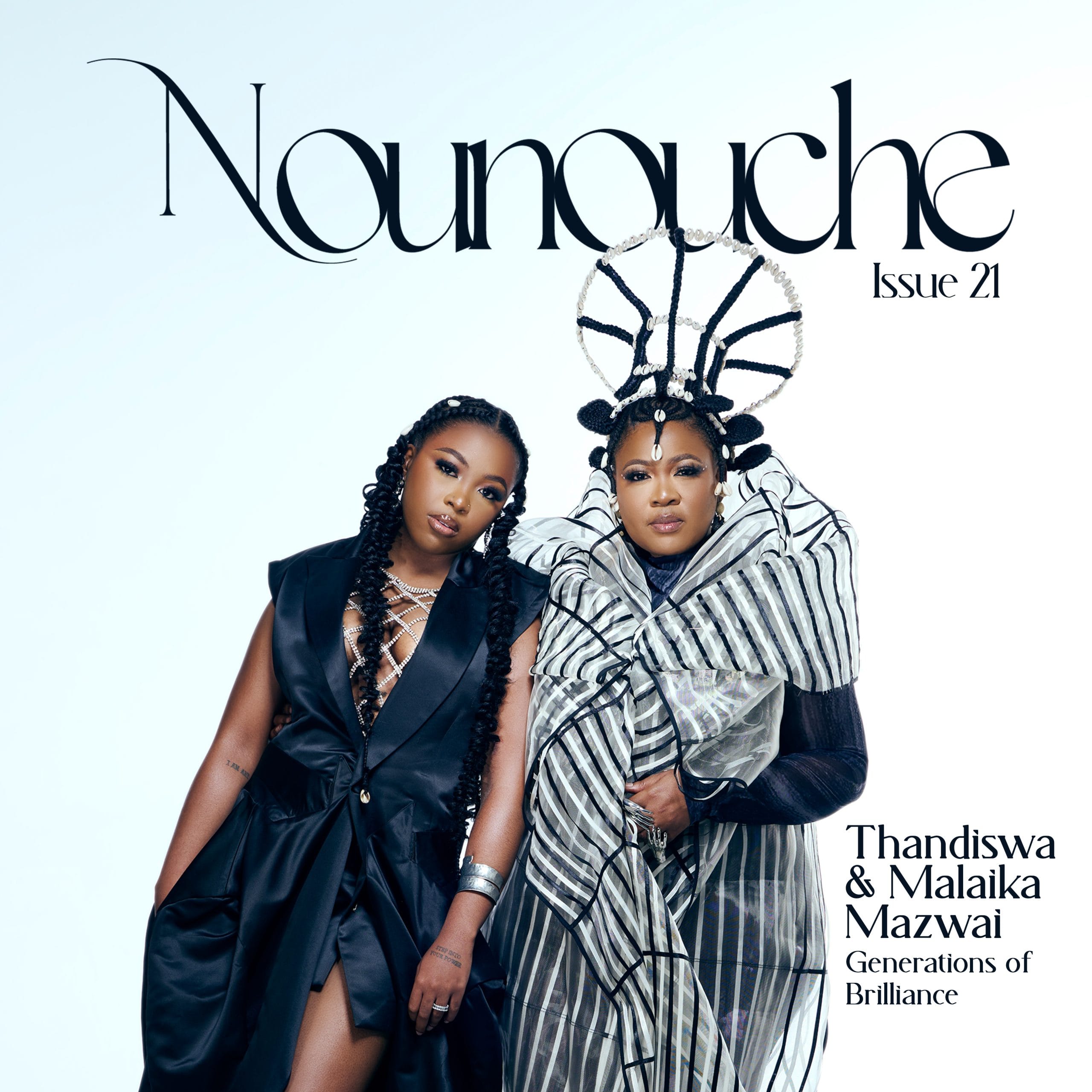
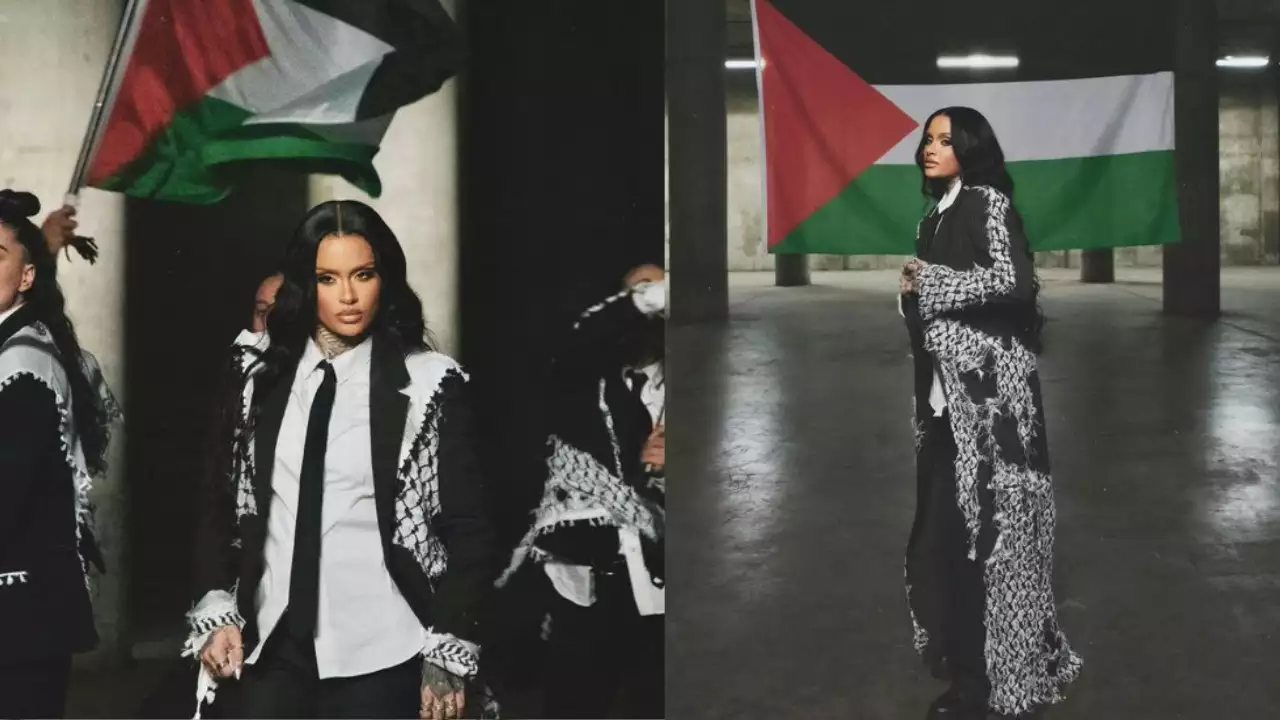
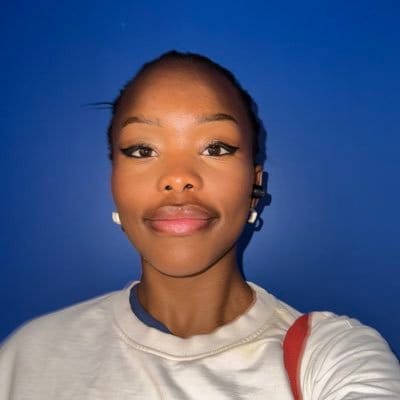
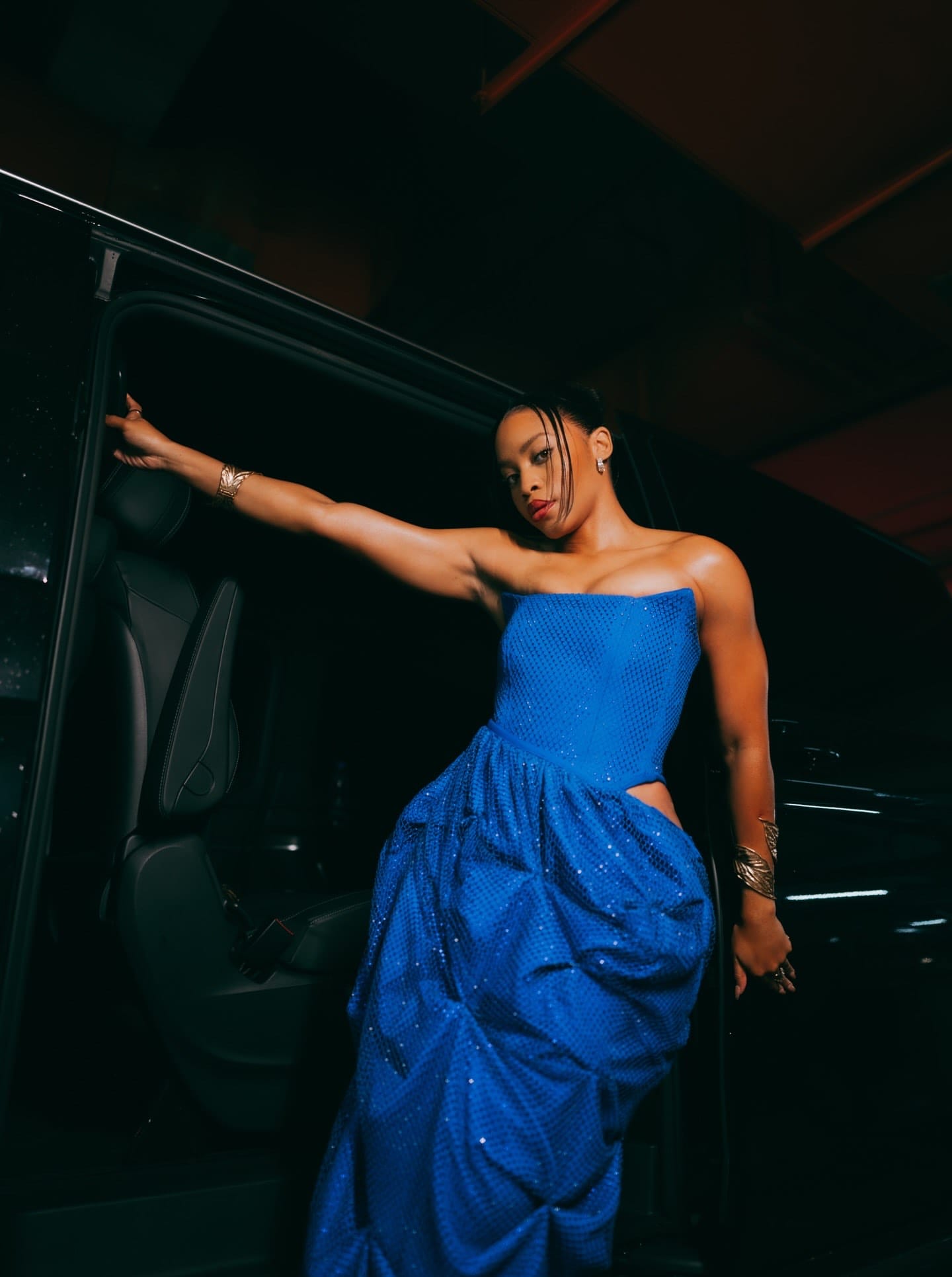


No Comments